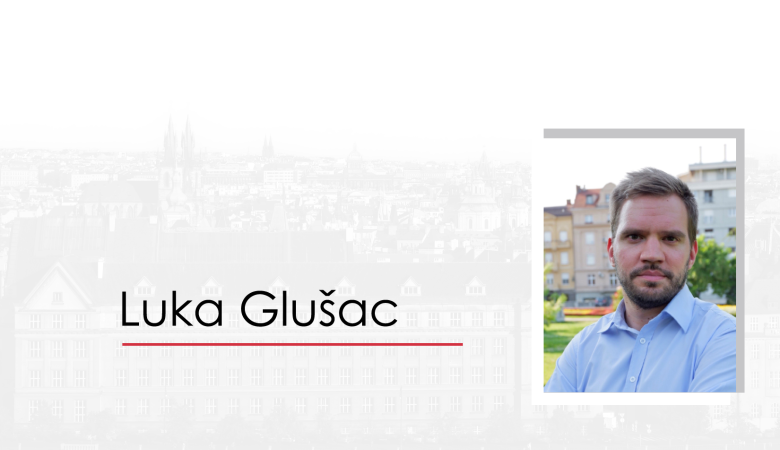Prague Constitutional Seminar Series: Luka Glušac

Prague Constitutional Seminar Series: Luka Glušac
The Department of Constitutional Law invites you to a seminar in the recently launched Prague Constitutional Seminar Series:
Luka Glušac (University of Belgrade) will present his draft paper, Towards an Inductive Theory of the Fourth Branch of Power: A Road
If you are interested in receiving the presented text, please enter your email here.
You can subscribe here for regular email updates about the seminar series.
The seminar will take place on Thursday, May 22, at 16:30 in Room 38.
The event will be held in English.
Everyone is warmly welcome!
Bio
Luka Glušac is the Deputy Director and a Senior Research Fellow at the Institute for Philosophy and Social Theory, University of Belgrade. He holds a PhD in Political Science from the same university. Prior to joining the Institute, he spent a decade working in public administration and with international organizations.
His research and advisory work focus on the intersection of the rule of law, security, and human rights. He specializes in the institutional design of accountability mechanisms—particularly ombuds institutions and anti-corruption agencies—and their relationship with the legislative and executive branches. As an international expert, he has contributed to strengthening parliaments and independent oversight bodies in numerous countries across Europe, Asia, and Africa.
His research has been published in various international academic journals, including Politics and Governance, Human Rights Law Review, Netherlands Quarterly of Human Rights, International Journal of Human Rights, and Journal of Human Rights Practice. His 2023 book, published by Ubiquity Press (London), explores the role of ombuds institutions in achieving the Sustainable Development Goals, with a particular focus on security sector governance. His forthcoming book (with Routledge), co-authored with Daniel Reimers, examines ombuds institutions for the armed forces.
Abstract
The article I will present at the seminar examines the widespread practice of using extended judicial formations to decide selected types of cases in higher courts, a practice present in many jurisdictions—whether appellate, apex, or supranational. While these formations, often considered the ‘most important’, are frequently debated within individual countries, a conceptual and comparative analysis providing a firmer theoretical foundation for these discussions is currently lacking. Departing from existing scholarship, which often assumes a universal purpose for these bodies, I will argue that jurisdictions tend to adopt one of two ideal models of extended formations: the representative model or the jurisprudential model. These models reflect divergent sources of legitimacy for the enlarged formations—either rooted in the broader participation of judges in the court’s decision-making process (input or procedural legitimacy), or in the doctrinal quality of the decisions that the grand chamber produces and the consequences they bring about (output or performance-based legitimacy). These distinctions help to explain differences in how extended formations are composed, the types of cases they hear, the procedures they follow, and how their decisions are written and subsequently used within the court. Ultimately, I will argue that the choice between the two models reflects broader assumptions within different judicial systems about the nature of law and judging.








